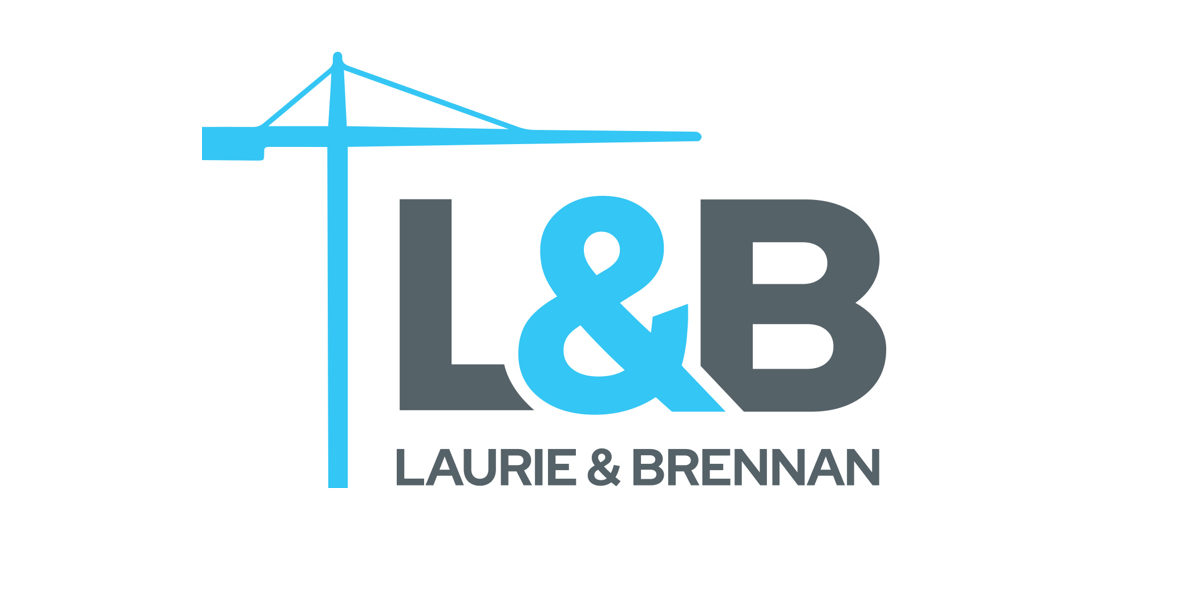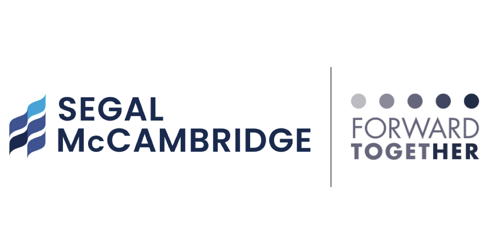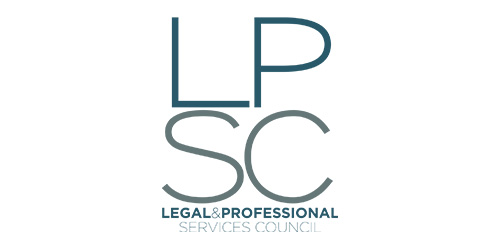10 Steps to Choosing a Law Firm Website Designer

In today’s digital landscape, a strong online presence is crucial for law firms of all sizes. A well-designed law firm website not only attracts potential clients but also reinforces your firm’s credibility and authority. If your firm’s website feels outdated or isn’t performing optimally, it may be time to consider a redesign. Here are ten steps to selecting the right website design company for your law firm.
- Assess Your Needs and Goals
Before you start looking for a website vendor, it’s essential to have a clear understanding of your specific needs and goals. Consider the following:
- What are the primary objectives of the redesign? Are you aiming to improve user experience, increase traffic, generate leads or enhance mobile responsiveness?
- What features and functionalities are essential? Do you need a blog, client portal, online payment system, case management integration or other features?
- Who is your target audience? Understanding your audience will help tailor the site to their needs. Consider the types of clients you want to attract, as well as other audiences such as lateral hires or alumni.
For more complex websites, compile your specifications into an RFP, send it to three to 10 companies and evaluate their proposals.
- Research Potential Law Firm Website Vendors
Start by compiling a list of potential vendors. Look for agencies that specialize in law firm websites or have experience in the legal industry. You can find vendors through online searches, industry referrals, professional networks and legal marketing conferences. When evaluating potential vendors, asking the right questions will help you make a more informed decision. Some important questions include:
- How long have they been in business?
- How many law firm websites have they designed and built?
- Do they offer end-to-end services from discovery to launch? Many firms specialize in branding and front-end design, while others focus on website development. For large, complex sites, you may need to hire more than one agency.
- What is the typical timeline and key milestones for your website redesign?
- How many website projects would they be working on concurrently with yours?
- What team members would be involved in your project? What is their role and experience?
- Would they be outsourcing any part of the project to contractors?
- What is their quality assurance process throughout the development process, and during the beta release period?
- Will your firm retain ownership/copyright in the site after launch?
- Can they provide examples of law firm websites they have designed and/or built?
- Will the site be built on WordPress? If not, what content management system (CMS) will they use?
- What is their approach to user experience and design?
- How do they ensure the website is optimized for search engine optimization (SEO)?
- Evaluate Their Portfolio
Once potential vendors have been identified, dive deeper into their work by reviewing their portfolios. Focus on these key factors:
- Design Quality: Are their designs modern, unique and visually appealing?
- User Experience: Is the site easy to navigate with an intuitive site architecture?
- Functionality: Does the portfolio feature functionality that you are looking for in your site? Common law firm website functionality requirements include predictive search, print to PDF/proposal generators, embedded microsites, video libraries, animation, RSVP forms and databases, interactive maps and timelines, video libraries and vCalendars.
- Fast Loading Speed: Quick load times keep users engaged and reduce bounce rates.
- Accessible Content: Content that is easy to read and compliant with accessibility standards – including clear fonts, proper color contrast and alt text for images – is required by law.
- Out-of-the Box thinking: Does their portfolio feature cutting-edge technology, the latest trends and designs that are not cookie-cutter?
- Industry Experience: Do they have experience working with law firms of your size? A site for a 10-attorney firm will be very different than a site for a 500-lawyer firm.
- Case Studies: Case studies or testimonials from previous clients can provide insights into their capabilities and results.
This step will give you a clearer sense of the company’s design style, technical capabilities and whether their past projects align with your law firm’s needs.
- Check Their Reputation
A website designer’s reputation can offer valuable insights into their reliability and quality of work. Consider:
- Online Reviews: Look for reviews on Google, Yelp or other review platforms.
- References: Ask for references and speak to the company’s past clients about their experiences.
- Awards and Recognitions: Awards or recognitions in the industry can be a good indicator of the vendor’s expertise.
- Thought Leadership: Thought leadership can demonstrate that they are at the forefront of their field.
Evaluating these factors will provide a comprehensive understanding of the designer’s reliability to ensure you select a partner your law firm can trust.
- Assess Their Expertise and Capabilities
Ensure the agency has the technical expertise and capabilities to meet your needs. Ask about:
- Technology Stack: What technologies do they use? Are they up to date with the latest trends and best practices?
- Customization: Can they provide custom solutions tailored to your specific needs? Are they providing custom designs or working from a template?
- SEO and Content Strategy: Do they have experience with SEO and content strategy to ensure your website ranks well in search engines?
- Content migration: What is their migration process for transferring content from your site and other sources to the new site?
Ensuring the agency has the right technical expertise will help avoid challenges and ensure the finished project will align with your firm’s expectations.
- Evaluate Their Process and Communication
Understanding the vendor’s process and communication style is crucial for a smooth project. Ask about:
- Project Management: What is their process and approach to managing projects? What tools and methodologies do they use?
- Communication: How often will they communicate with you? Who will be your main point of contact? What is their process for incorporating client feedback?
- Timelines: What are their typical project timelines? Can they meet your deadlines? What kind of turnaround time will you have to make decisions?
The key to keeping the project on track and avoiding unnecessary delays is clear communication and an efficient process.
- Discuss Integrations
Law firms often leverage multiple systems and tools to create a successful website. Identify which integrations are necessaryyou’re your website and determine the associated costs. Common law firm website integrations include:
- Client Relationship Management (CRM) Systems: Application programming interfaces (API) like Salesforce or HubSpot help manage client information, track interactions and automate follow-ups.
- Document Management Systems (DMS): Integrations with systems like NetDocuments or iManage allow secure access, storage and sharing of legal documents directly through the website.
- Knowledge Management, Experience Management and Matter Management: Platforms such as Foundation that integrate with other systems within your law firm can capture and organize data related to matters, clients, attorneys and outcomes.
- Payment Gateways: APIs like Stripe or LawPay enable secure online payment processing for client invoices and retainers.
- Legal Research Tools: APIs from platforms like Westlaw or LexisNexis allow seamless access to legal research databases and resources.
- Appointment Scheduling: Tools like Calendly or Acuity Scheduling can be integrated to allow clients to book consultations directly from the website.
- Chatbots and Live Chat: Integrations with services like Intercom or Drift provide real-time client support and engagement.
- Email Marketing Platforms: APIs like Mailchimp, Constant Contact or Vuture can automate client communications and manage mailing lists.
- Client Portals: Secure APIs for creating client portals where clients can access case information, documents and updates.
- SEO and Analytics Tools: Google Analytics and other SEO tools can be integrated to track website performance and optimize for search engines.
- Content Management Systems (CMS): APIs from WordPress or Drupal for easy content updates and management.
By ensuring your site integrates with the right tools, you can create a streamlined experience for clients and your legal team.
- Consider Post-Launch Support and Maintenance
A website redesign is not a one-time project; ongoing support and maintenance is essential to keep your website functional and secure. When evaluating a vendor, explore the following questions:
- Maintenance Plans: Does the vendor offer maintenance plans? What is included?
- Support: What kind of support do they provide post-launch? How quickly can they address issues?
- Training: What training and instructional materials are offered to ensure your team can manage the website effectively pre- and post-launch?
- Security: What steps are taken to provide a secure site?
A strong support system post-launch will help you maintain a reliable, up-to-date website for the long term.
- Discuss Pricing and Contracts
Be transparent about your budget and ensure there are no hidden costs. Ask for a detailed breakdown of expenses, including research, design, development, content migration, SEO services, hosting and ongoing support. Questions to ask include:
- Pricing Structure: Do they charge a flat fee, hourly rate or a retainer?
- Scope of Work: What is included in the scope of work? Ensure all deliverables are clearly outlined.
- Payment Terms: What are the payment terms? Are there any milestones or payment schedules?
- Contract: Secure a sample copy of their contract, if possible. Look for any ambiguities, hidden fees or charges you don’t understand.
Having a clear understanding of costs and contract terms helps avoid surprises down the road and align expectations from the outset.
- Trust Your Instincts
Choose a vendor that not only meets your technical requirements but also aligns with your firm’s values and communication style. A strong working relationship is essential to a successful website redesign project.
Take Your Law Firm Website to the Next Level
Choosing the right vendor for your law firm’s website is a critical decision that can significantly impact your online presence, client acquisition and talent recruitment. By following these steps and asking the right questions, you’ll be equipped to find a vendor who not only delivers a website that not only meets your goals but also exceeds your expectations.
If you need help throughout the process, Builden is here to guide you through every step.















